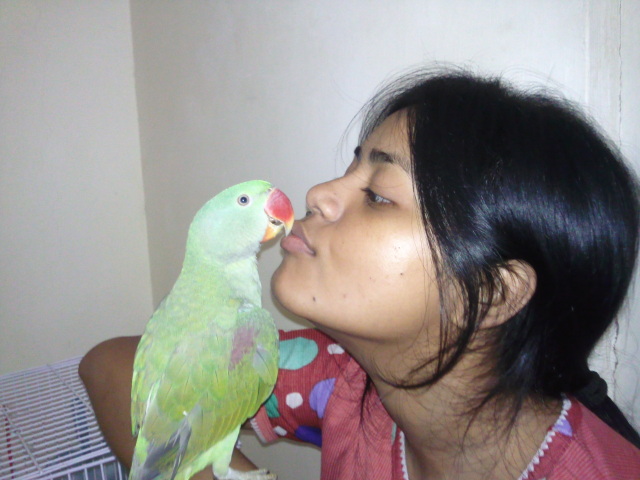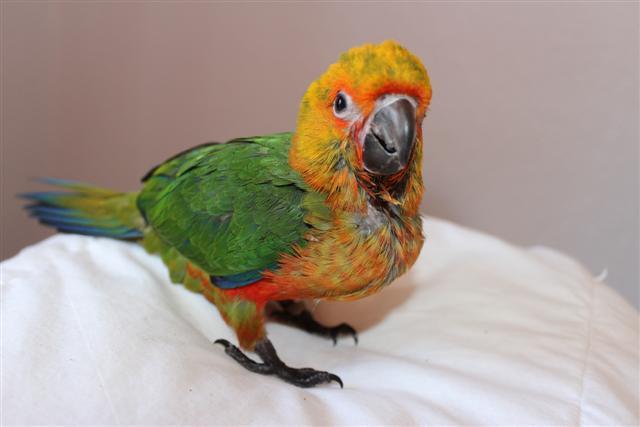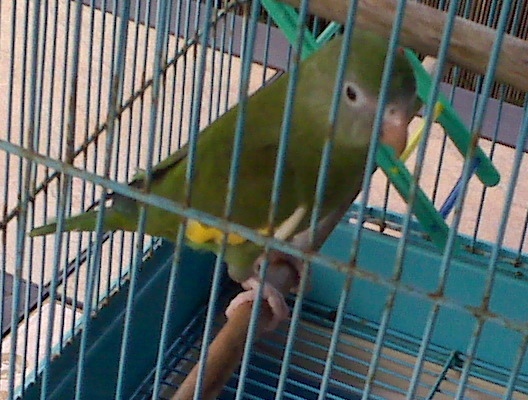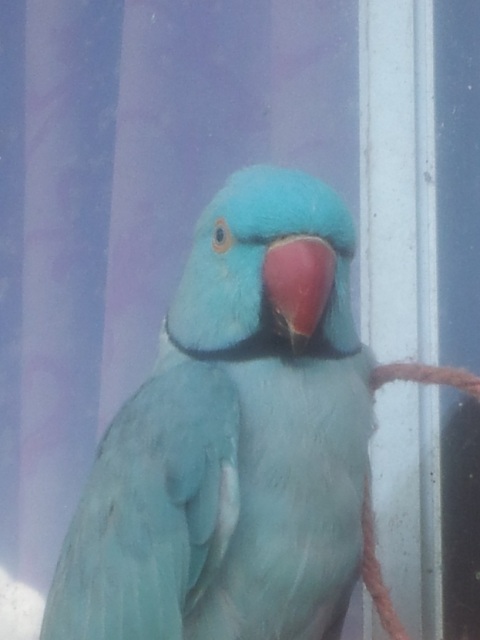QuestionI was given a 6 year old female lovebird for my classroom. The kids really enjoy having her in the room, however she bites everyone, including me, the hand that feeds her. I now have her home for the summer and would like to train her not to bite me. How can I do this?
Answer The one most positive thing about parrots like this is that no matter how old they are, they are always learning new things. It's vital to their survival in the wild and it makes them really fascinating studies in animal behavior.
Children, by nature of the human animal, have high pitched voices and jerky movements that adults might not perceive, but the birds always do. It triggers a "warning, warning" alarm and the only way to take back control is to either fly off and be done with it or use their beaks to make it stop.
Always come at a bird slowly and purposefully from the side, at or just below their eye level. Never allow the children to surround the bird, but to all stand in front of the bird (from the side of the bird at eye level to the front).
We use our big macaws for teaching tools and before we put the bird on anyone's arm (not hand, forearm), we reach out to "shake hands" with the child, but don't let go. Then as you hold the child's hand, with your other hand, put the bird on their forearm.
This prevents the child from jerking away or dropping their arm or doing anything else unpredictable.
Birds aren't "petting" pets. They might sometimes enjoy scritches to the back of the neck by an adult while they're relaxing - usually at a 'nap' time at mid morning or late afternoon, but once you get this little lovey used to YOUR hands, you can hold her comfortably in your cupped palms while children (one at a time) stroke her head.
Once the bird struggles, it's time to respect the bird and teach that lesson to the kids.
Getting the bird used to YOU over the summer shouldn't be so hard. Once she's in a calmer environment and has daily interaction, out of cage time and bonding, she should be good to go when school starts.
I've got more info about how to get this done here:
www.4AnimalCare.org (click on 'birds')
Let me know how it goes - I'll support you all the way!

 ID Birds
Question
Panama Birds
My uncle served in Panama in 1941
ID Birds
Question
Panama Birds
My uncle served in Panama in 1941
 can i give my parrot chole(chana) called in hindi
Question
my little chaddi alexa
dear sir,
can give chan
can i give my parrot chole(chana) called in hindi
Question
my little chaddi alexa
dear sir,
can give chan
 Jenday Conure Weaning?
Question
Castor the Conure
Hi
I have a 9 week o
Jenday Conure Weaning?
Question
Castor the Conure
Hi
I have a 9 week o
 What type of parrot is this?
Question
Friendly bird
A week ago ths small parrot flew
What type of parrot is this?
Question
Friendly bird
A week ago ths small parrot flew
 RE: Indian Ringneck probems
Question
Indy our Ringneck
Thank you for your he
RE: Indian Ringneck probems
Question
Indy our Ringneck
Thank you for your he